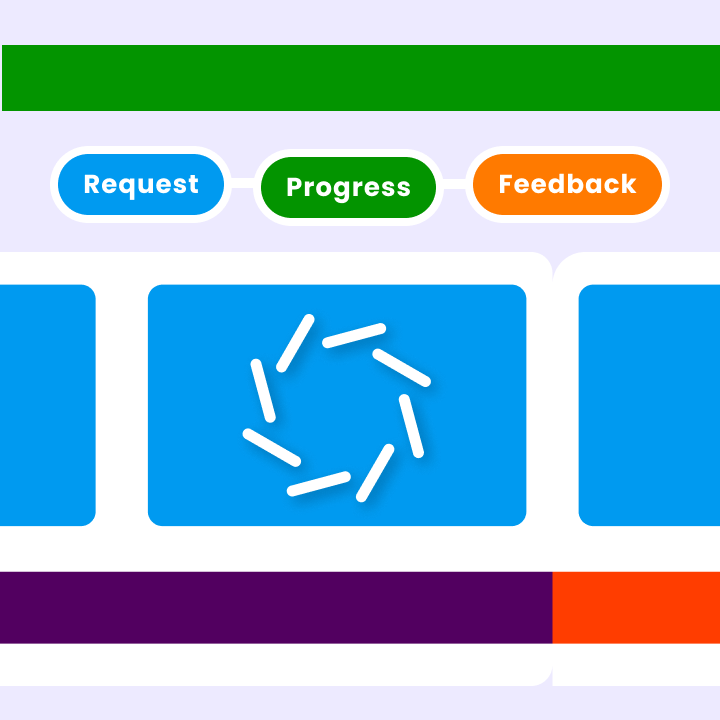Are you curious about the role of a marketing project manager? Whether you’re considering this career path or looking to understand how it can benefit your business, this guide provides a clear and practical overview.
In this article, we will explore the responsibilities and skills associated with this role. We’ll also cover job descriptions, salary expectations, and potential career paths to help you determine if this is the right fit for you. Let’s dive in!
What Is a Marketing Project Manager?
Marketing campaigns can be fast-paced and complex, with many moving parts. Even the best ideas can falter without someone to keep everything organized. That’s where a marketing project manager steps in. They ensure that creative teams stay focused, deadlines are met, and strategies are executed effectively. But what does this role truly entail, and how does it differ from other positions on a marketing team?
Role Overview
A marketing project manager plays a crucial role in ensuring that marketing projects are executed efficiently from beginning to end. Their responsibilities extend beyond basic project management; they work to help campaigns meet their objectives, adhere to budgets, and comply with deadlines across different channels. Whether it involves launching a digital advertisement, executing a social media initiative, or managing a comprehensive rebranding effort, the project manager ensures that all elements function together effectively.
They are responsible for managing timelines, delegating tasks, tracking progress, and addressing any challenges that arise. Additionally, they act as strategists by monitoring key performance indicators (KPIs), making data-informed decisions, and ensuring that campaign delivery aligns with overarching marketing and business goals. Effective communication is essential to their success, as they serve as the main point of contact among content specialists, designers, marketing strategists, and executive sponsors.
In larger organizations, they may oversee global campaigns that involve multiple teams. In smaller environments, they often take on a variety of roles, ranging from task manager to strategist to occasional copy editor. Regardless of the setting, their influence is significant, as they bring structure to the creative process.
Distinguishing Roles: Marketing Managers vs. Project Managers
It’s easy to confuse the title of marketing project manager with other roles. Here’s a breakdown of the differences between a marketing manager, a project manager, and a marketing project manager:
- A marketing manager focuses on the overall marketing strategy. They decide which products to promote, identify target audiences, and select appropriate channels. Their emphasis is on the “what” and the “why.”
- A traditional project manager can work in various fields, from construction to IT. They are responsible for deadlines, scope, and budgets but may lack specific marketing knowledge, such as campaign funnels or audience personas.
- A marketing project manager combines elements of both roles. They manage tasks like a project manager but with a marketing perspective. They understand lead conversion rates, how to schedule cross-platform campaigns, and the importance of A/B testing.
In summary, the relationship between marketing managers and project managers is complementary. Marketing managers define the vision, while project managers execute it. This distinction is crucial, especially in high-pressure environments where performance is as vital as strategy.
Managers who recognize this blended function can build stronger, more adaptable teams. Candidates who embrace innovative thinking and process management will stand out in any marketing department.
Key Responsibilities of a Marketing Project Manager
If you’re wondering what a marketing project manager does beyond managing schedules, think of them as the conductor of an orchestra. They coordinate people, timelines, budgets, and tools to ensure every campaign achieves its intended impact. Their role involves multitasking, deep marketing knowledge, and proactive problem-solving. Here’s a closer look at their daily responsibilities.
Campaign Planning and Timeline Management
Every advertising campaign begins with an idea, but it requires a clear roadmap. Marketing project managers transform vague concepts into actionable plans. They create detailed timelines that break down complex campaigns into manageable stages, considering team interdependencies.
For example, a product launch may involve coordinating email marketing, social media, advertising, landing page design, and content development. Each component has deadlines and must be sequenced appropriately. The project manager ensures that the timeline is realistic and that key milestones are monitored.
They utilize tools like Morningmate, Trello, or ClickUp to create timelines and visualize progress. These tools centralize updates, assign tasks, and provide real-time transparency for stakeholders.
However, timelines are not static. They must be continuously updated based on feedback, delays, or resource constraints. This means the project manager regularly checks in, adjusts plans, and keeps everything on track, even when circumstances change.
Team Collaboration and Communication
Marketing teams rarely work in isolation. Campaigns often require collaboration across design, content, paid media, development, analytics, and external vendors. The marketing project manager ensures that all these elements are aligned.
They facilitate cross-functional collaboration by organizing kick-off meetings, sending recap notes, and hosting regular check-ins. These meetings help identify risks early, reassign tasks as needed, and ensure accountability. They also document everything—briefs, approvals, feedback—so that critical information is never overlooked.
Effective communication is central to their role. They translate creative ideas into actionable deliverables and technical requests into timelines. They also manage team dynamics, balancing creativity with the discipline required for timely delivery while protecting teams from scope creep.
Familiarity with tools like Slack, Zoom, and Google Workspace is beneficial. Additionally, developing soft skills such as clear communication, emotional intelligence, and the ability to navigate different personalities is essential.
Budget Tracking and Resource Allocation
Even the most creative campaign can falter without a solid understanding of finances. Overseeing budget management and resource allocation throughout the project lifecycle is a key responsibility of the marketing project manager.
They create initial cost estimates, set budget limits for each department, and monitor actual spending. When teams exceed their budgets, they troubleshoot: Can we use in-house resources instead of outsourcing? Can we reduce or consolidate deliverables? These decisions must be made quickly and thoughtfully to keep the project on track.
They also manage team workloads. If the design team is overwhelmed while the content team has capacity, the project manager may reassign tasks to maintain balance and prevent burnout. This requires effective project tracking tools and ongoing communication with team leads.
At a higher level, they analyze historical campaign data to better forecast resource needs for future projects. This insight helps marketing leaders make informed investment decisions and manage risks effectively.
Reporting and Performance Analysis
After a campaign is launched, the project manager enters the post-campaign analysis phase. This involves assessing whether the campaign met its expected results, if the timelines were realistic, and whether the team adhered to the budget.
To evaluate performance, the marketing project manager monitors key performance indicators (KPIs) such as impressions, conversions, cost per click, and return on ad spend (ROAS). However, it is important to note that numbers alone do not provide a complete picture; they must be transformed into actionable insights. The project manager documents lessons learned and suggests improvements for future campaigns.
Recap reports are compiled to summarize the campaign’s execution in relation to the initial plans. These reports offer transparency to stakeholders and can serve as templates for optimizing future campaigns.
In some instances, particularly in digital-first organizations, performance reviews may take place in real time. Tools like Morningmate and Airtable facilitate live tracking of campaign milestones, team progress, and budget adjustments, providing project managers with an up-to-date overview of execution health.
Ultimately, the effectiveness of a marketing project manager is assessed not only by the outcome of the project but also by the efficiency of the process. A well-managed campaign is one that launches on schedule, remains within budget, and yields valuable insights for future enhancements.
Key Skills for Success
A career as a marketing project manager demands more than just the ability to create timelines. It requires a blend of strategic planning, creativity, and leadership. Whether you’re coordinating a social media campaign or preparing for a product launch, these skills are crucial for thriving in a fast-paced, high-stakes environment.
Fundamentals of Project Management
A solid grasp of project management is essential. This includes planning, scheduling, budgeting, and monitoring. Marketing project managers often juggle multiple campaigns at once, and without exceptional organizational skills, it’s easy for conflicts to arise or tasks to be overlooked.
Familiarity with project management methodologies—such as Agile, Waterfall, or a hybrid approach—is typically expected. Agile, in particular, allows for flexibility and quick adjustments, making it ideal for dynamic marketing teams. This approach breaks campaigns into manageable sprints and facilitates regular updates based on feedback.
Additionally, project managers must excel in risk management by anticipating potential issues and developing contingency plans. This may involve creating timeline buffers, securing backup resources, or using time-tracking tools for better visibility.
Knowing how to define projects, identify dependencies, and set realistic deadlines can be the difference between a successful campaign and one that falls short.
Strategic Marketing Insight
Success in this role goes beyond managing workflows; it involves ensuring that marketing strategies are effectively executed. A comprehensive understanding of the entire campaign cycle is necessary, including brand messaging, audience segmentation, funnel stages, content marketing, and analytics.
A proficient marketing project manager should recognize how different marketing tactics influence business outcomes. For instance, understanding the relationship between SEO and lead generation or how social media enhances brand awareness is vital. This knowledge aids in prioritizing tasks and resolving creative disputes.
Cross-channel coordination is also crucial. Campaigns often combine paid ads, organic content, email workflows, and landing pages, all of which must work together seamlessly. Understanding how these channels interact—particularly regarding timing and messaging—provides a significant advantage.
This expertise allows project managers to engage effectively with strategists and stakeholders, ensuring that implementation aligns with corporate objectives rather than merely checking off tasks.
Communication and Stakeholder Management
Effective communication is the lifeblood of any project. A marketing project manager must clearly articulate expectations, share updates, and resolve conflicts among departments. This involves creating detailed project briefs, managing feedback loops, and facilitating discussions between creative teams and executive stakeholders.
Listening is just as important as speaking. Project managers need to absorb client feedback, team concerns, and leadership insights, translating them into actionable steps. Managing expectations is critical, especially when timelines shift or budgets tighten.
Technical Tools and Digital Proficiency
Today’s marketing project managers must be comfortable with modern digital tools. While they may not need to create landing pages or run ads, they should understand how these systems function and where dependencies exist.
Key tools include:
- Campaign planning: Morningmate, Asana, ClickUp
- File and asset management: Google Drive, Figma, Dropbox
- Communication: Slack, Zoom, Notion
- Reporting: Google Analytics, HubSpot, Looker
Moreover, AI tools are transforming the landscape. Platforms like Morningmate offer features such as auto-generated task lists, AI-driven reports, and real-time status updates. Utilizing these tools enables teams to work more efficiently and stay informed without unnecessary meetings or delays.
Sample Job Description for a Marketing Project Manager
A well-crafted job description for a marketing project manager can attract qualified candidates and help job seekers understand the role. Below is a sample that hiring managers can adapt and candidates can use for clarity.
Role Summary
We are looking for a highly organized and proactive marketing project manager to join our dynamic team. In this role, you will plan, execute, and deliver multi-channel marketing campaigns. You will collaborate with designers, creatives, digital marketers, and senior leadership to ensure timely delivery, budget adherence, and alignment with business goals.
This position is ideal for someone who thrives in energetic environments, enjoys working with cross-functional teams, and is detail-oriented and deadline-driven.
Responsibilities
Here’s a snapshot of the daily expectations for a marketing project manager. These duties encompass the entire campaign lifecycle, from initial planning to execution and final review.
- Develop and maintain project timelines using tools like Morningmate or Asana.
- Manage end-to-end campaign workflows from kickoff to post-mortem.
- Coordinate with creative, content, and digital teams on goals, assets, and deadlines.
- Liaise with external vendors, freelancers, and media partners.
- Monitor project progress and address any delays or obstacles.
- Lead status meetings and provide clear weekly updates to stakeholders.
- Track campaign budgets and resource allocation.
- Document lessons learned and update campaign playbooks for future reference.
Required Skills and Qualifications
The following section outlines the core skills and experience necessary for success in this role, including both technical knowledge and soft skills.
- 3–5 years of experience in marketing or project management.
- Strong understanding of marketing campaigns, performance metrics, and digital channels.
- Excellent written and verbal communication skills.
- Proven ability to lead cross-functional teams.
- Experience with project management platforms (Morningmate, ClickUp, Trello).
- Familiarity with content calendars, briefs, and asset delivery workflows.
- Bachelor’s degree in Marketing, Business, Communications, or a related field.
Preferred Qualifications
In addition to the essential requirements, familiarity with related tools can provide a competitive edge. Consider the following:
- PMP, Scrum Master, or Agile certification.
- Experience in B2B and B2C campaign environments.
- Knowledge of tools such as Google Analytics, HubSpot, and SEM platforms.
This job listing captures the full range of requirements and can be tailored to fit the specific needs of your organization. For candidates, it serves as a checklist to identify strengths and areas for improvement.
Career Path and Salary Expectations
A career as a marketing project manager offers an exciting opportunity for those who thrive at the crossroads of strategy, execution, and team collaboration. This role blends creativity with structured planning, making it ideal for individuals who enjoy managing project timelines, improving processes, and working across different teams.
The journey to becoming a marketing project manager can take various paths, whether starting in marketing coordination, account management, or general project management. The key is to demonstrate the ability to deliver results on time and within budget while engaging with multiple stakeholders.
Entry-Level to Senior Roles
Entry-level positions typically include Marketing Coordinator, Project Assistant, or Junior Project Manager. These roles provide essential experience in tools, team communication, and campaign workflows. Over time, individuals may choose to specialize in areas such as digital, content, or event marketing.
Mid-level professionals usually hold the title of Marketing Project Manager. They oversee entire campaign cycles, collaborating with strategy, creative, and analytics teams. Their responsibilities include managing timelines, resources, and often budgets.
At the senior level, roles evolve into positions like Senior Marketing Project Manager, Program Manager, or Marketing Operations Lead. These professionals manage multiple projects, supervise junior project managers, and contribute to process design, hiring, and departmental coordination.
Ultimately, marketing project managers can advance to roles such as Marketing Director, Head of Campaign Strategy, or even VP of Marketing, especially if they develop expertise in strategic planning and business development.
Average Salary by Region
Salaries vary based on location, industry, and company size. Here’s a general overview based on industry averages:
- United States: According to Glassdoor, the national median salary for a marketing project manager is around $85,000 annually, typically ranging from $65,000 to $110,000 depending on experience and location.
- United Kingdom: In London and other major cities, salaries range from £40,000 to £65,000, with senior positions reaching up to £75,000 or more.
- Canada: Average salaries fall between CAD $65,000 and $90,000, often higher in tech hubs like Toronto and Vancouver.
- India / Southeast Asia: Salaries are generally lower than in Western countries but are rising quickly, particularly in digital marketing centers.
Freelance or contract positions are also available, often in startups or agencies. These roles typically pay an hourly or project rate and offer flexibility, though they may lack stability. Review the marketing project manager job description carefully before applying to avoid potential issues later.
Future Growth and Demand
The demand for skilled marketing project managers is growing, driven by the increasing complexity of campaigns. As digital strategies span social media, email, mobile, and influencer platforms, companies recognize that creativity alone is insufficient. Effective management of timelines, assets, approvals, and outcomes is essential.
Companies that utilize centralized project management systems have reported up to 25% faster campaign delivery and 30% fewer missed deadlines, according to an industry overview for 2025 on campaign management tools. This highlights the growing importance of project coordination—not just for team alignment, but for delivering measurable business results.
As AI, automation, and real-time analysis become standard, professionals who combine technical skills with project management expertise will be in high demand.
How to Become a Marketing Project Manager
If you’re interested in entering this impactful role, the good news is that there’s no single path. However, there are strategic steps you can take to become a standout marketing project manager, whether you’re transitioning from another role or starting your career.
Recommended Education and Certifications
Most marketing project manager positions require at least a bachelor’s degree. While degrees in marketing, communications, or business are common, some professionals come from diverse backgrounds such as psychology, media, or design, especially if they have gained marketing knowledge.
Certifications can help you stand out. Consider pursuing:
- PMP (Project Management Professional) – A recognized standard for experienced professionals.
- Certified ScrumMaster (CSM) – Valuable for those working in Agile environments.
- Google Project Management Certificate – Affordable and well-structured.
- HubSpot Inbound Marketing or Google Ads/Analytics – For a deeper understanding of marketing.
While certification is not mandatory, it can enhance your credibility, especially if you’re transitioning from a non-marketing role or applying for positions in larger organizations.
Gaining Hands-On Experience
Practical experience is crucial for preparing for this role. Start by getting involved in campaign execution, even in a supportive capacity. Many project and marketing managers begin as marketing coordinators or assistants, where they coordinate timelines, vendors, or reporting activities.
Internships and freelance work are excellent ways to build a portfolio. Look for opportunities that cover the entire marketing funnel, from planning to post-campaign analysis. Even organizing events or launching small social media campaigns can provide exposure to the tools, deadlines, and collaboration typical of the job.
Tools to Learn and Use
A solid understanding of strategic planning tools and campaign management platforms is essential. While companies may use different tools, the core functionalities are often similar.
Popular tools include:
- Morningmate: Offers centralized dashboards for campaign planning, task assignment, file sharing, and real-time updates. Its AI-powered summaries and visual timelines are particularly useful for tracking complex workflows.
- Asana and Trello: Help teams break projects into manageable tasks using visual boards and timelines to keep everyone organized.
- ClickUp: Combines various project management features, including time tracking and Gantt charts, and supports deep integrations for streamlined workflows.
- Slack and Zoom: Slack is ideal for quick team communication and file sharing, while Zoom facilitates virtual meetings for face-to-face collaboration.
- Google Workspace and Notion: Google Workspace includes Docs, Sheets, and Drive for real-time collaboration, while Notion offers flexible tools for note-taking, project tracking, and content planning.
- Google Analytics, SEMrush, and HubSpot: These tools help track campaign results and user behavior, as well as assist with SEO research, lead management, and performance reporting.
You don’t need to master every tool, but you should be comfortable learning new ones quickly and using them to simplify campaign execution.
Build Soft Skills Along the Way
In addition to technical skills, focus on developing communication, conflict resolution, and time management abilities. You’ll often need to address questions, alleviate stress, and resolve delays. Balancing empathy with accountability is a crucial leadership trait.
If you’re already in marketing and want to shift to project management, consider shadowing a project lead or assisting with scheduling and brief creation. These small steps will help you build a foundation for managing full campaigns.
The more you practice connecting strategy to action—and people to outcomes—the stronger your application will be for a marketing project manager role.
FAQs About Marketing Project Managers
In this section, we’ll address some frequently asked questions about the role of marketing project managers. Here are the top three questions and their answers.
What does a marketing project manager do daily?
A marketing project manager’s daily tasks focus on keeping campaigns on track. Mornings typically begin with a quick review of timelines, project updates, and emails. They then hold stand-up meetings to delegate tasks and resolve any issues that could hinder progress.
They collaborate with designers, strategists, and content creators, reviewing briefs, securing approvals, and ensuring timely delivery of assets. They also coordinate with external vendors or freelancers to ensure their contributions align with the overall campaign.
Much of their day involves tracking timelines using tools like Morningmate or ClickUp, updating stakeholders on progress, and adjusting deadlines or resources as needed. By the end of the day, they have balanced timelines, managed feedback, answered questions, and clarified next steps for all stakeholders.
This role combines a structured routine with the flexibility to adapt to changes, making it ideal for someone who enjoys juggling multiple tasks while maintaining focus on the bigger picture.
Do you need a PMP or marketing degree?
While a degree in marketing, business, or communications is common, it is not strictly necessary. Many successful marketing project managers come from diverse backgrounds, including journalism, media, or customer service.
More crucial than your degree is your understanding of successful marketing processes and your ability to manage people, resources, and deadlines effectively.
Certifications like PMP (Project Management Professional) or Scrum Master can enhance your credibility, especially for positions in larger organizations. They demonstrate your knowledge of formal project management structures and their practical application. However, hands-on experience in managing marketing campaigns can be just as valuable.
For those without formal qualifications, building a portfolio through freelance work, internships, or personal projects can be equally beneficial.
Where do marketing PMs work?
Marketing project managers can be found in various industries and organizations. They work in digital marketing agencies, SaaS startups, corporate marketing teams, non-profits, and e-commerce companies.
In agencies, the environment is fast-paced and client-focused, often juggling multiple campaigns for different brands. In-house roles, on the other hand, emphasize long-term strategy and internal collaboration.
Remote work is increasingly common in this field. Many organizations use cloud-based planning tools like Morningmate to manage virtual teams, making it easier to find project managers from anywhere.
Typical employers include:
- Technology and software (SaaS)
- Healthcare and pharmaceuticals
- Finance and fintech
- Education
- Consumer goods and retail
- Digital and media agencies
The flexibility of this role allows organizations with in-house marketing functions to benefit from hiring a marketing project manager.
In summary, this profession offers flexibility, high demand across various sectors, and clear opportunities for advancement, making it one of the most promising roles in today’s marketing landscape.
Need clarity and control in your campaigns? Try Morningmate
A solid strategy is only as effective as its execution, and that’s where a marketing project manager truly shines. They help teams translate goals into actionable steps, eliminate confusion, and deliver impactful campaigns.
With powerful strategic planning tools like Morningmate, marketing teams can manage tasks, share files, track progress, and gather feedback all in one centralized workspace. This streamlines the process, accelerates approvals, and keeps your campaign on track, even when plans change.
Why Morningmate Works For Marketing Teams
- Plan and assign campaign tasks across departments.
- Visualize timelines with Gantt charts and status icons.
- Centralize feedback, polls, and approvals.
- Generate AI-powered reports and summaries.
- Collaborate effortlessly with internal and external teams.
Ready to streamline your strategy, enhance delivery, and achieve results? Try Morningmate for free and take charge of your campaigns with confidence.




